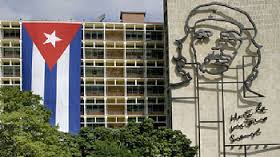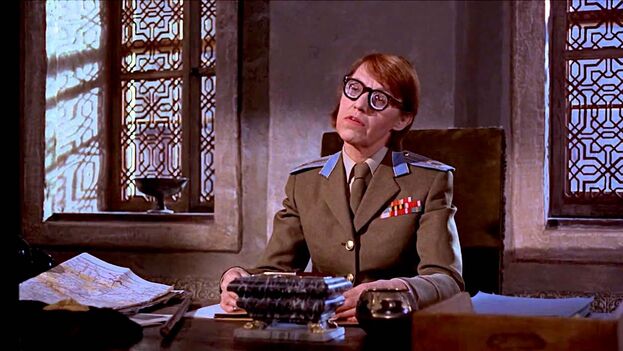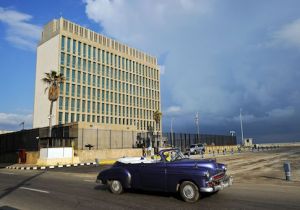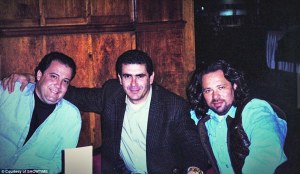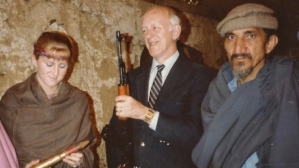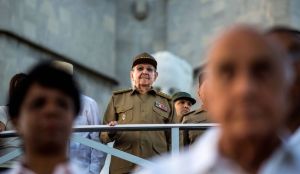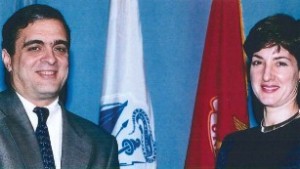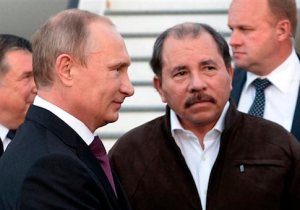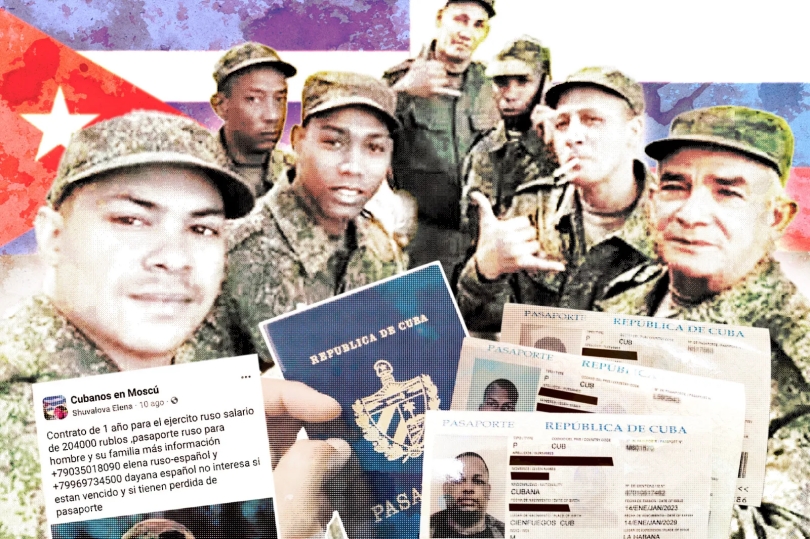 Photo-illustration by Lon Tweeten for TIME Images: Alain Pararazzi Cubano / YouTube, Facebook, CyberResistance UA / Telegram
Photo-illustration by Lon Tweeten for TIME Images: Alain Pararazzi Cubano / YouTube, Facebook, CyberResistance UA / Telegram
SEPTEMBER 18, 2023 6:00 AM EDT
Alex Vegas Díaz was surprised to find himself sleeping next to Russian soldiers in a trench in Ukraine, more than 6,000 miles from home. In his telling, the skinny 19-year-old Cuban accepted an offer posted on WhatsApp to make good money doing “construction work” for the Russian military. Instead, he and a friend were taken to a base, outfitted with weapons, and sent against their will to the front lines of a war they never intended to join.
“What is happening in Ukraine is ugly—to see people with their heads open before you, to see how people are killed, feel the bombs falling next to you,” Vegas Díaz said in an Aug. 31 video, speaking from a Russian hospital, where he said he was recovering from an illness before being sent back to the front. “Please, please help get us out of here.”
The plea for help went viral. Similar stories began to surface, as Cubans posted online and called into talk shows to ask for information about family members who had also flown to Moscow to join the Russian military. The outcry eventually prompted the Cuban government to issue a striking allegation: a “human trafficking network” operating out of Russia was luring young Cubans to enlist to fight in Ukraine. On Sept. 8, Cuban officials said they had arrested 17 people in connection with the alleged trafficking scheme. They could face up to 30 years in prison for engaging in mercenary activity, which is against Cuban law.
But social-media posts, audio messages, and videos from recruits in Russia reviewed by TIME, along with interviews with family members and documents obtained by a Ukrainian hacker group that corroborate their identities, combine to tell a very different story. They indicate that Vegas Díaz became caught up in a large, organized operation that has openly recruited hundreds of Cuban volunteers to fight in Moscow’s increasingly depleted army since July. They also suggest that the trafficking allegations may be an attempt by the Cuban government, a longtime ally of Russia, to maintain its stated neutrality on the war in Ukraine, four Cuba experts and former U.S. officials tell TIME.
Feature continues here: Havana Human Trafficking

